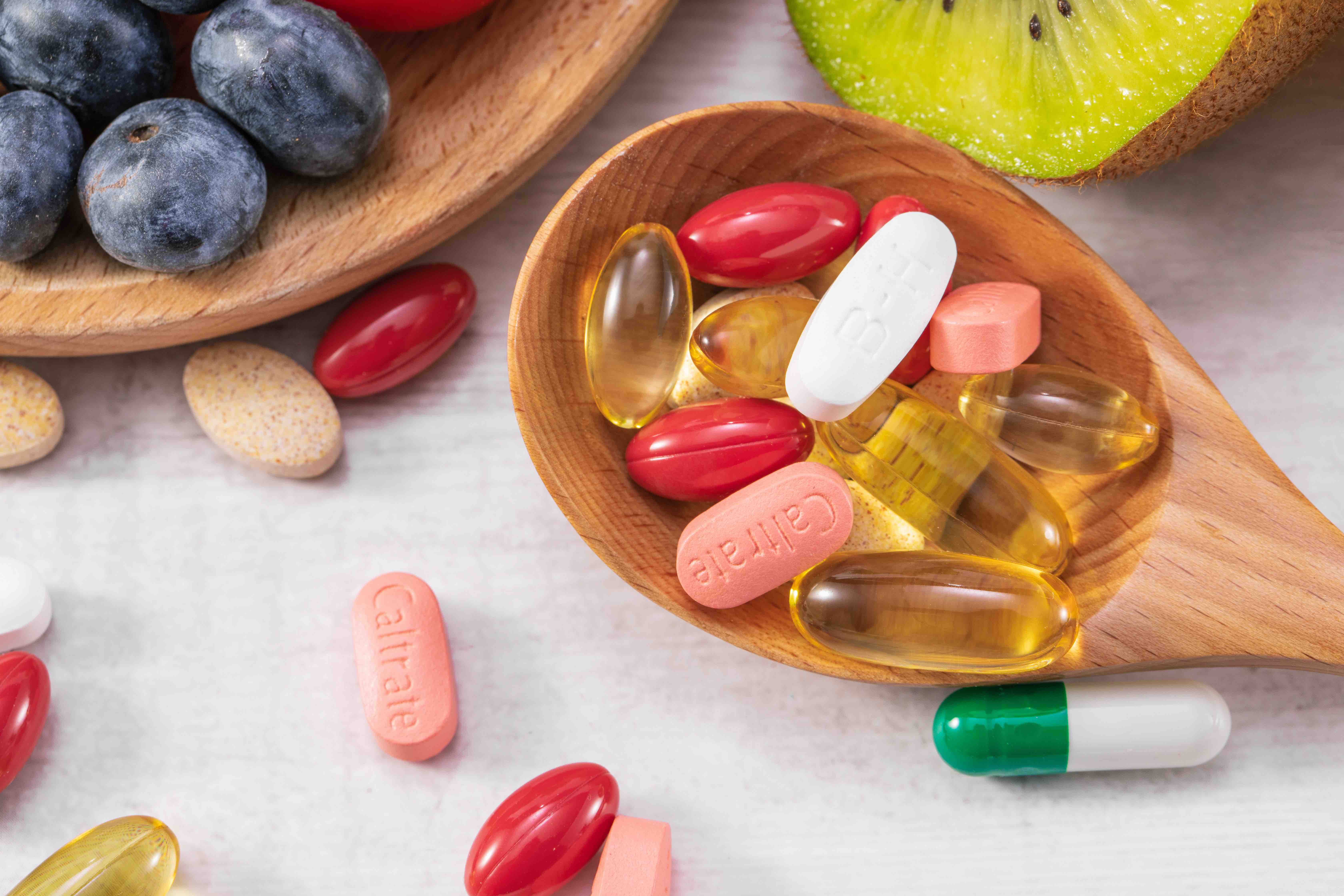1. Vitamin D
- What it does: Supports bone health, immune function, inflammation control.
- Evidence: A Harvard‑affiliated study found daily vitamin D slowed biological aging and lowered DNA damage—participants were “nearly three years younger” at the cellular level after four years of supplementation (jinfiniti.com, hsph.harvard.edu).
- Expert voice: Dr. Verdin (CEO of the Buck Institute) includes vitamin D in his core longevity stack along with B12, omega‑3s, and creatine (businessinsider.com).
- How much: Common doses fall between 1,000–2,000 IU daily; a doctor in a Boston study took 2,000 IU/day (businessinsider.com).
2. Magnesium
- Benefits: Aids sleep, muscle/nerve health, metabolic function.
- Why it matters: Foundational for cellular repair and anti-aging, magnesium deficiency impairs DNA repair pathways (businessinsider.com).
- From the field: Liver specialist Dr. Morris‑Stiff takes 500 mg twice daily and emphasizes professionals should tailor doses (businessinsider.com).
3. Omega‑3 Fatty Acids (Fish Oil)
- Strengths: Cardiovascular support, lowers cholesterol, anti-inflammatory.
- Data-backed: A 2021 Barcelona study linked high omega‑3 blood levels to nearly five extra years of life (nypost.com).
- Clinician’s view: Dr. Aziz advises fish oil to "add years to your life," and is often grouped with selenium and CoQ10 (en.wikipedia.org).
4. Coenzyme Q10 (CoQ10)
- Role: Mitochondrial energy production, antioxidant protection.
- Clinical takeaway: In chronic heart failure patients, 300 mg/day CoQ10 reduced all-cause and cardiovascular mortality, and improved heart function (en.wikipedia.org, en.wikipedia.org).
- Precautions: Generally safe—but at high doses may cause mild GI symptoms (gq.com).
5. Creatine
- Why it helps: Supports muscle mass, bone strength, and cognitive health in aging adults (longevity.stanford.edu).
- What the expert says: Dr. Verdin includes creatine in his longevity regimen for both mind and body benefits (businessinsider.com).
6. NAD+ Precursors (NMN, NR)
- Mechanism: Boosts NAD+, essential for DNA repair, metabolism, and cell energy.
- What’s new: NMN is trending in 2025; experts like Harvard’s Dr. Sinclair are studying dosages between 600–1,200 mg/day (thetimes.co.uk, indiatimes.com).
- Skepticism: Human trial data remains limited; intraveneous vs. oral delivery effectiveness is still debated (en.wikipedia.org).
7. Other Emerging Compounds
- Glycine: Helps mimic methionine restriction and supports autophagy—key anti-aging processes (sciencedirect.com).
- Fisetin, micro‑dosed lithium, and AKG: Proposed by gerontologists, but most humanevidence is in early stages (krisverburgh.com).
Voices from the Field
“I take fish oil every single day, as well as vitamin D, magnesium, B complex, vitamin C.”
— Anonymous quote from BrainyQuote (brainyquote.com)
“What’s the upward limit? I don’t think there is one. … We’re probably still a long way off from pushing it ever farther into the future.”
— David Sinclair, Lifespan, quoted in 2023 (peacejoyaustin.medium.com)
“Supplements marketed to improve longevity are booming. But longevity doctors say, actually, less is more… expert tips include blood testing and self-monitoring.”
— Business Insider on emerging caution (businessinsider.com)
What to Watch Out For
- Multivitamins: Large studies show no longevity benefit—and possibly a 4 % increase in mortality risk (jamanetwork.com). A robust 20-year US study found no survival difference and an uptick in death risk (medicalnewstoday.com).
- High-dose single nutrients: E.g., vitamin E or A; elevated doses may backfire or increase risk .
- Over-hyped miracle cures: Rapamycin and other advanced drugs are being marketed prematurely (science.org).
Research and Safety First
- Get tested—know your vitamin D, B12, omega-3 index, magnesium levels.
- Start low, go slow—introduce one supplement at a time.
- Pair with lifestyle—diet, exercise, sleep, stress, social connection are foundational (businessinsider.com).
- Work with a provider—align intake and prevent interactions with medications.
Quick Cheat Sheet
SupplementTypical DosePrimary BenefitsVitamin D1,000–2,000 IU/dayAnti-aging, bone, inflammation Magnesium200–500 mg/daySleep, muscle, metabolic health Omega‑31–2 g EPA+DHA/dayHeart, brain, inflammation CoQ10100–300 mg/dayHeart health, mitochondria Creatine5–25 g/dayMuscle strength, bone & brain health NMN or NR600–1,200 mg/dayNAD+ support, energy, cell repair Glycine, FisetinExperimental dosesAutophagy, cell-clearing, early data
Final Takeaway
Supplements like vitamin D, magnesium, omega‑3s, CoQ10, creatine, and NAD+ precursors have the most credible evidence supporting their role in extending healthspan (well-being with age). Emerging compounds like glycine, fisetin, and micro‑lithium show promise—but still lack robust human trials.
🚨 Avoid blanket multivitamins or unchecked high-dose supplementation. Instead, keep it personalized: test first, dose carefully, and treat supplements as add-ons (not “silver bullets”) to a healthy lifestyle.
Trusted Resources
- Harvard T.H. Chan School of Public Health: Certain vitamins and minerals may help boost longevity (hsph.harvard.edu)
- NCBI (PMC): Prolonging healthy aging: Longevity vitamins and proteins (pmc.ncbi.nlm.nih.gov)
- Business Insider, Health & Aging experts: Drs. Enayat, Morris‑Stiff, Verdin, Aziz, etc. (businessinsider.com)

